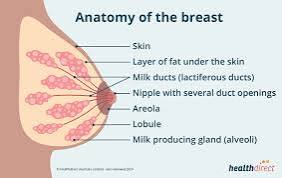Understanding Breast Cancer: Causes, Symptoms, Diagnosis, and Treatment

Breast cancer is one of the most common cancers affecting women worldwide, although it can also occur in men. It originates from the uncontrolled growth of abnormal cells in the breast tissue, most commonly in the lining of the milk ducts or lobules that supply milk to the ducts.
Causes and Risk Factors:
The exact cause of breast cancer is not fully understood, but several factors can increase the risk. These include genetic mutations (such as BRCA1 and BRCA2), family history of breast cancer, age (risk increases with age), hormonal factors (early menstruation or late menopause), lifestyle factors (obesity, alcohol consumption), and exposure to radiation.
“Beat the Pressure: A Comprehensive Guide to Lowering Blood Pressure Naturally.”
Buy book from Gumroad or Paystack
Symptoms:
Common signs of breast cancer include a lump in the breast or underarm, changes in breast size or shape, skin dimpling, nipple discharge, or nipple inversion. It is important to note that early breast cancer may not cause any symptoms, which is why regular screening is crucial.
Diagnosis:
Breast cancer is typically diagnosed through a combination of physical exams, imaging tests such as mammograms, ultrasounds, and MRIs, and biopsy procedures where a sample of breast tissue is examined under a microscope. Early detection significantly improves the chances of successful treatment.
Treatment:
Treatment options depend on the type, stage, and characteristics of the cancer and may include surgery (lumpectomy or mastectomy), radiation therapy, chemotherapy, hormone therapy, and targeted therapy. Advances in personalized medicine have allowed for more tailored treatments that increase effectiveness and reduce side effects.
Prevention and Awareness:
While not all breast cancers can be prevented, maintaining a healthy lifestyle, regular exercise, limiting alcohol intake, and avoiding tobacco can lower risk. Awareness of breast cancer symptoms and regular screenings such as mammograms are vital for early detection.
In summary, breast cancer remains a major health concern, but advances in medical research and public awareness have improved outcomes. Early detection and appropriate treatment are key to managing the disease effectively. Regular check-ups and being informed about personal risk factors can empower individuals to take control of their breast health.
💔 “She said she loved me. And for fifty-two years, I believed her.” 💔
Buy The Book "The Longest Lie: A Husband’s Journey Through Love, Betrayal, and Redemption" From Gumroad






